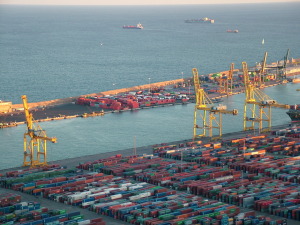 The majority of people have heard the old saying: “the early bird gets the worm.” Well, the same holds true for trade facilitation – and there are a few good reasons why.
The majority of people have heard the old saying: “the early bird gets the worm.” Well, the same holds true for trade facilitation – and there are a few good reasons why.
Trade facilitation creates a more efficient supply chain connectivity for improved international trading, builds economic and port infrastructure as well as interconnecting region suppliers in a more fluid and cost-friendly way.
But first, let’s back up a bit and give some history. . .

 With the finalization of a Trade Facilitation Agreement (“TFA”) at the conclusion of the 9th Ministerial Conference in Bali, Indonesia, on December 7, 2013 (see:
With the finalization of a Trade Facilitation Agreement (“TFA”) at the conclusion of the 9th Ministerial Conference in Bali, Indonesia, on December 7, 2013 (see:  On January 21, 2014, the White House announced the first U.S.-Africa Leaders Summit in Washington, DC to take place on August 5 and 6, 2014. President Obama invited leaders from across the African continent with the aim of strengthening ties with one of the world’s most dynamic and fastest-growing regions. Six of the world’s ten fastest growing economies of the past decade are in sub-Saharan Africa. According to the White House Press Release, “[t]he Summit will build on the progress made since the President’s trip to Africa last summer, advance the Administration’s focus on trade and investment in Africa, and highlight America’s commitment to Africa’s security, its democratic development, and its people.”
On January 21, 2014, the White House announced the first U.S.-Africa Leaders Summit in Washington, DC to take place on August 5 and 6, 2014. President Obama invited leaders from across the African continent with the aim of strengthening ties with one of the world’s most dynamic and fastest-growing regions. Six of the world’s ten fastest growing economies of the past decade are in sub-Saharan Africa. According to the White House Press Release, “[t]he Summit will build on the progress made since the President’s trip to Africa last summer, advance the Administration’s focus on trade and investment in Africa, and highlight America’s commitment to Africa’s security, its democratic development, and its people.”
 The African Growth & Opportunity Act (AGOA) was enacted in 2000 to stimulate trade and investment between the United States and Sub-Saharan Africa. Since 2000, AGOA has been credited with more than doubling U.S. trade with AGOA-eligible countries. Today, African markets are growing rapidly, and trade and investment opportunities abound. With AGOA set to expire on September 30, 2015, the discussion about AGOA renewal has begun.
The African Growth & Opportunity Act (AGOA) was enacted in 2000 to stimulate trade and investment between the United States and Sub-Saharan Africa. Since 2000, AGOA has been credited with more than doubling U.S. trade with AGOA-eligible countries. Today, African markets are growing rapidly, and trade and investment opportunities abound. With AGOA set to expire on September 30, 2015, the discussion about AGOA renewal has begun.